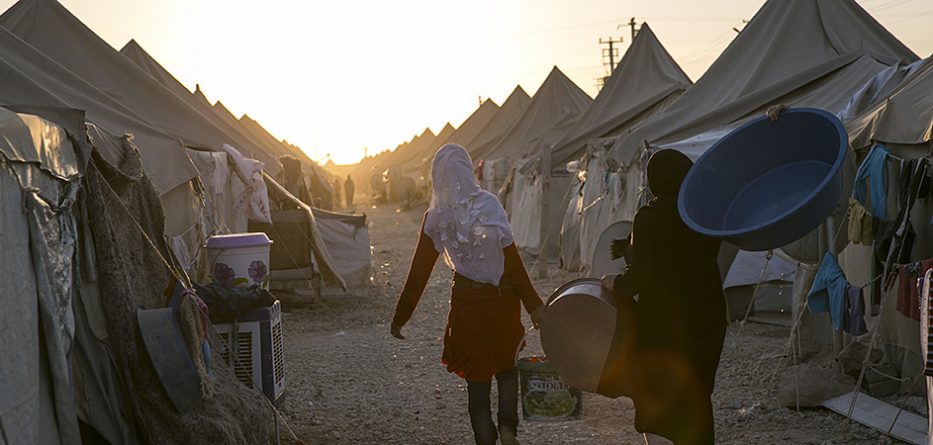“People on the move are part of the solution” and “no one is safe until everyone is safe,” says the United Nations chief in his new Policy Brief on people on the move.
As COVID-19 continues to devastate lives and livelihoods around the globe, hitting the most vulnerable the hardest, UN Secretary-General Antonio Guterres is calling on all view the crisis as an opportunity to reimagine human mobility for the benefit of everyone.
3 crises rolled into 1
In a video message to present his new Policy Brief, entitled “COVID-19 and People on the Move,” he lamented that millions of people on the move, such as refugees and internally displaced persons who are forced to flee their homes from violence or disaster, or migrants in precarious situations, now face three crises rolled into one.
Firstly, Guterres noted, they are confronted with the health crisis in a context where in crowded conditions, “social distancing is an impossible luxury.” Basic necessities such as health care, water, sanitation and nutrition are often hard to find.
Secondly, people on the move face a socio-economic crisis, although often without access to any social protection such as those working in the informal economy.
Guterres pointed out that “the loss of income from COVID-19 is likely to lead to a colossal $109 billion drop in remittances,” depriving some 800 million people back at home who depend on them.
Thirdly, with around 150 countries imposing border restrictions to contain the spread of the virus, the UN chief said people on the move also face a protection crisis. He pointed out that xenophobia, racism and stigmatisation are on the rise, and women and girls are particularly exposed to gender-based violence, abuse and exploitation.
Yet, despite these challenges, Guterres noted that people on the move are contributing heroically on the frontlines, in essential work. As an example, he said about 1 in 8 of all nurses globally is practicing away from their native countries.
Four core understandings
In this context of the COVID-19 pandemic, Guterres pointed to 4 core understandings needed to reimagine human mobility.
Firstly, countries need to recognise that exclusion is costly. On the other hand, “an inclusive public health and socio-economic response will help suppress the virus, restart our economies and advance the Sustainable Development Goals (SDGs).”
The second understanding calls for upholding human dignity in the face of the pandemic. The UN Secretary-General commended countries that have implemented restrictions and border controls with full respect for human rights, as well as international refugee protection principles.
“Third, no-one is safe until everyone is safe,” Guterres stressed, adding, “diagnostics, treatment and vaccines must be accessible to all.”
Finally, the Secretary-General reiterated that “people on the move are also part of the solution.”
“No country can fight the pandemic or manage migration alone. Together, we can contain the spread of the virus, buffer its impact on the most vulnerable and recover better for the benefit of all.”
With thanks to Vatican News and Robin Gomes, where this article originally appeared.








